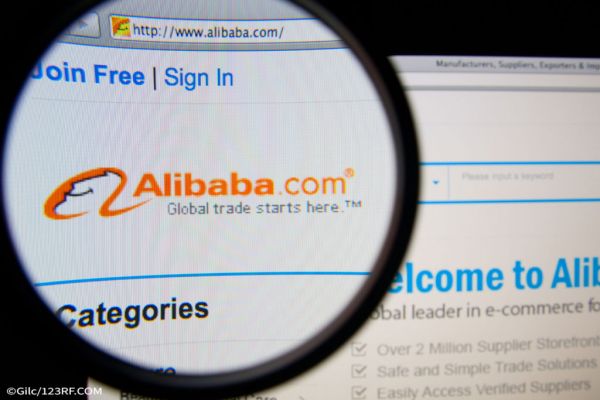Chinese internet companies face a new reality after Donald Trump’s surprise victory as U.S. president-elect -- and Alibaba Group Holding Ltd. has the most to lose.
On the campaign trail, Trump promised to upend global trade, saying that China is “ killing us” on trade policy and proposing tariffs on Chinese goods of as much as 45 percent. If implemented, his ideas could lead to "devastating" results, from global trade wars to higher costs of living, and "spell the end of globalization," according to Darrell West, a vice president at the Brookings Institution.
"He was very critical of Chinese trade agreements and has threatened to rip them up," West said. “If he did that, the consequences for Chinese companies would be enormous.”
Of China’s web giants -- including Baidu Inc., Alibaba and Tencent Holdings Ltd. -- Trump’s trade policies, if implemented, are likely to pose the biggest threat to e-commerce operator Alibaba. While Baidu and Tencent focus on the domestic Chinese market, Alibaba has a significant part of its business tied to trade in the U.S. Higher tariffs on Chinese goods would depress demand for its AliExpress site, where Chinese retailers sell to U.S. consumers. Ensuing trade disputes could hurt sales on its Tmall platform, in which U.S. and international brands sell to Chinese consumers.
“Given the direct and indirect risks, the election probably has the greatest impact on Alibaba more than any Chinese internet business,” said Gil Luria, an analyst at Wedbush Securities Inc. “If there are disruptions in trade, it would impact the willingness and likelihood of U.S. brands and retailers to take an active part on Tmall.”
International Gateway
Alibaba’s management has said that its primary short-term focus isn’t consumers in the U.S., and that it is trying to gain share in developing markets first. Trump’s presidency will probably solidify Alibaba’s decision to target U.S. consumers in the longer-term, according to Luria.
See also: Trump’s China wall will hurt U.S. firms: Gadfly
Yet Trump’s policies could upset Alibaba’s plan to act as the gateway for international retailers to reach Chinese consumers. If new policies caused China to retaliate and raise tariffs on U.S. goods, that could hurt Alibaba’s Tmall sales in China, Luria said.
“A positive relationship between the U.S. and China is important for the world,” an Alibaba representative said in a statement. “We believe Alibaba is doing our part by enabling U.S. businesses -- large and small –- to access the China market, creating American jobs and economic opportunity.”
Investors were already skeptical of Alibaba’s growth prospects, as China’s largest e-commerce company faces a slowing domestic economy. Trump’s imminent presidency only compounds those fears. The company’s stock fell 3.2 percent in New York on Wednesday to $96.67. The Chinese economy could fall into a deeper recession if Trump enacted trade sanctions, hurting the domestic consumer demand that Alibaba relies on.
If China and the U.S. don’t work together, "it’s going to be a disaster," Chairman Jack Ma said in an interview with CNNMoney on Wednesday. Billionaire Ma said he is hopeful that Trump won’t carry through with the threats he made during the campaign.
Foreign Workers
Trump’s presidency also may limit the ability of companies like Alibaba to bring talent from China to work in the U.S., according to West. Trump advocated for stricter limits on immigration during his campaign -- it’s unlikely that he would expand the H-1B visa program, which is aimed at foreign workers with specialized skills. Some firms in America may see the citizenship of its potential hires as a more important consideration than other qualifications if it becomes difficult to ensure that foreign workers will be welcome.
The big question for technology companies and investors is how many of Trump’s words he will put into action, West said.
“I think everyone is rethinking their strategy because no one is sure what a Trump presidency will look like.”
News by Bloomberg, edited by ESM. To subscribe to ESM: The European Supermarket Magazine, click here.














